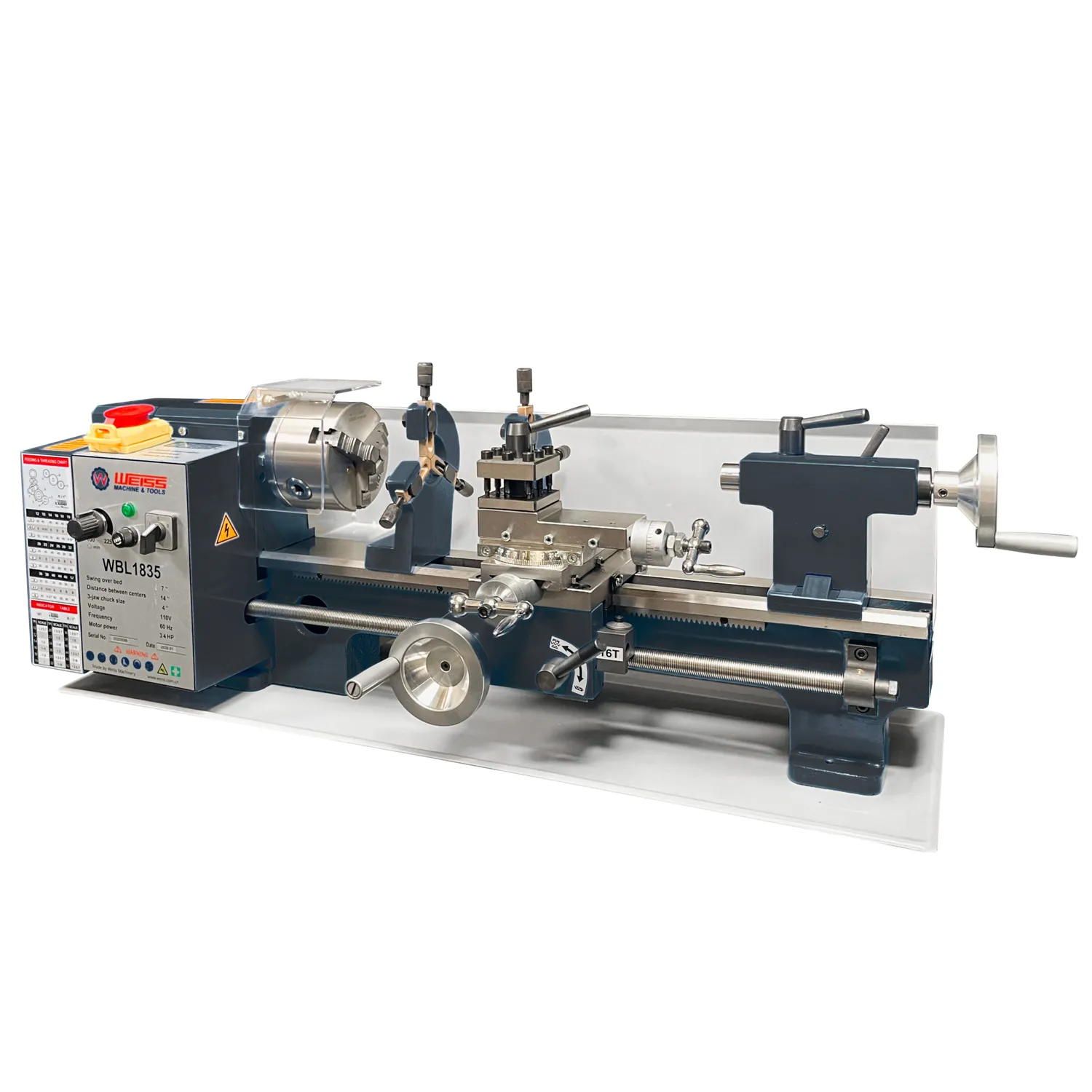When working with metal, wood, or even plastic, precision is everything. For many, a benchtop milling machine offers the best of both worlds: a compact design that fits in small workshops and the capability to handle various milling tasks with impressive accuracy. Whether you’re a hobbyist, a student, or a small-scale fabricator, benchtop milling machines bring versatile machining within reach.

What is a Benchtop Milling Machine?
A benchtop milling machine is a smaller, more compact version of the standard milling machine, designed to sit on a workbench or table rather than the floor. These machines are perfect for those who don’t need the capacity of a full-size mill but still require a reliable, precise tool for shaping metal, wood, or plastic parts.
Why Choose a Benchtop Model?
Benchtop milling machines are popular among hobbyists, small businesses, and educational institutions. They offer affordability and versatility while maintaining the essential features needed for milling operations. Their smaller footprint makes them ideal for smaller workshops, home garages, and educational environments where space is a premium.
Key Features to Consider
1. Motor Power and Speed
The motor’s power is a critical factor that directly affects the types of materials the machine can handle. Most benchtop mills offer variable speed settings, allowing you to adjust for softer materials like wood or tougher metals like aluminum or steel.
2. Spindle Taper
The spindle taper affects tool compatibility and ease of tool changes. Common options include R8 or MT2. Choosing the right taper ensures you’ll have access to a wide range of tooling options suited to your specific projects.
3. Table Size and Travel
The dimensions of the table and the range of movement (or “travel”) are essential, especially if you plan on working with larger pieces. The table should accommodate the part size and have enough movement to reach all areas you need to mill.
4. Control Type: Manual vs. CNC
While manual machines allow for full control and hands-on adjustments, CNC (Computer Numerical Control) machines provide automation and are particularly useful for intricate projects that require precision and repeatability.
5. Additional Features
Some machines come equipped with digital readouts (DRO) for better accuracy, power feed for hands-free operation, and tilting heads for angled cuts. These extras can improve usability and precision but may increase the cost.
Applications of Benchtop Milling Machines
Benchtop mills are versatile and can be used for a range of applications:
- Prototyping and Custom Parts: These machines are invaluable in making custom components for prototypes.
- Education: Benchtop mills are commonly used in educational settings for hands-on training.
- Hobby and DIY: Ideal for crafting, model making, and other hobbyist applications.
- Jewelry and Small Parts Machining: The precision and control make these machines suitable for small, detailed projects.
Top Benchtop Milling Machines
To help you find the right machine, here’s a look at some popular benchtop milling machines:
1. Proxxon 37110 Micro Mill MF 70
- Known for its compact design, this model is perfect for micro-machining and smaller projects.
- Features speed control and excellent precision, making it ideal for light metals and plastics.
2. JET JMD-18
- A powerful and versatile option, the JET JMD-18 suits light industrial applications and is known for its durability.
- It features an R8 spindle taper, a larger table, and variable speed settings.
3. Grizzly G8689 Mini Milling Machine
- A favorite for beginners and hobbyists, this model offers solid performance at a reasonable price.
- It provides variable speed control and is suitable for working with metals like aluminum.
4. Klutch Mini Milling Machine
- This machine balances reliability and affordability, featuring a 1/2 HP motor and adjustable depth control.
- Its sturdy frame and simple design make it user-friendly for small to medium projects.
How to Choose the Right Machine for Your Needs
When selecting a benchtop milling machine, consider your specific needs:
- Project Scope: What types of materials will you be milling? How precise do you need to be?
- Experience Level: Beginners might prefer models with user-friendly features, like digital readouts and safety guards.
- Budget: It’s essential to find a balance between features and cost. Basic machines may lack advanced features, but they can still offer excellent value.
Maintenance and Safety Tips
Keeping your benchtop milling machine in good working order requires regular maintenance:
- Clean Regularly: Dust and metal shavings can affect performance, so keep your machine clean.
- Lubricate Moving Parts: Regular lubrication prevents wear and tear.
- Follow Safety Precautions: Always wear protective equipment, secure your materials, and understand the controls before use.
Conclusion
A mill lathe combo machine can be a valuable lathe operations for various applications, from hobby projects to prototyping. With the right model, you’ll have the flexibility and precision needed for quality machining in a compact, budget-friendly package. By considering the features, applications, and best models listed here, you can make an informed choice and enjoy the benefits of a benchtop milling machine in your workshop.
